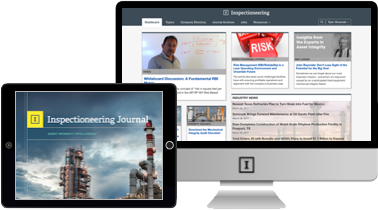Introduction
Reliability centered maintenance (RCM) is a critical component of any robust maintenance reliability program. Yet, historically, its value and efficacy have been overlooked by some because it is perceived as overly complicated or difficult to implement. These challenges are exacerbated when plants rely on old methods of data capture and analysis, making it difficult to retrieve the data required to optimize RCM. The industrial internet of things (IIoT) has changed the landscape of what’s possible in all facets of mechanical integrity – including RCM. With the latest digital and predictive technologies made possible by IIoT, the principles of RCM have become much easier to implement, as facilities are better prepared with rapid access to asset intelligence. This article will examine how such technologies can be utilized to both simplify and improve processes for RCM at asset-intensive facilities.
What is Reliability Centered Maintenance?
RCM is a systematic approach to maintenance used in asset-intensive industries to promote the reliability and safety of critical equipment. It is not a maintenance activity in and of itself, but rather a comprehensive method to determine the best maintenance activities for managing failure probabilities and consequences [1]. While the goal of RCM is to optimize and facilitate preventive maintenance, the tasks defined within it may include preventive, predictive, and even non-destructive testing methodology to both identify and monitor conditions that can lead to critical failure.
RCM was first created in the late 1960s to address the safety needs of the aviation industry. As the number of passengers riding aircraft increased, manufacturers realized that to sufficiently mitigate risk, the existing maintenance philosophy would not suffice in a manner that also allowed for the economic operation of planes. Thus, they created a new maintenance approach that was “designed to realize the inherent reliability of system functionality” while eliminating the time and cost of tasks that did not serve the purpose of mitigating intolerable risks [2].
Since then, RCM has evolved and is now applied to multiple asset-intensive industries, including the oil & gas and petrochemical sectors. While no standard currently exists that is specific to these energy industries; most organizations adhere to the minimum criteria outlined in technical standard SAE JA1011 – Evaluation Criteria for Reliability-Centered Maintenance (RCM) Processes [3].


















Comments and Discussion
Add a Comment
Please log in or register to participate in comments and discussions.